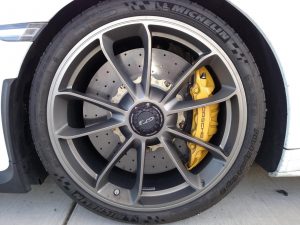Graphene firm may open light factory in Manchester

A TECHNOLOGY business is said to be considering opening a factory in Manchester producing LED lights which use graphene to make them more effective.
Speaking at a manufacturing event in the city last night, James Baker, business director at the National Graphene Institute (NGI) said the unnamed company was “close to opening a factory here in Manchester”.
Graphene is the super-light, super-strong material discovered by Manchester University’s Nobel prize winning scientists Professors Andre Geim and Kostya Novoselov.
It also conducts heat which is why there is interest in using it in LED lighting which can become very hot. The graphene would be used to dissipate the heat.
The NGI, which will formally open in a £60m purpose-built centre at Manchester University in March, brings together graphene research and industry.
It is already working with Bluestone Global Tech, which has laboratories in New York and Taiwan, and 2-DTech on various applications. 2-DTech is working on a project to create graphene reinforced polymers for dental implants with Liverpool firm Evodental, and is exploring the potential for graphene use in solar cells with Australian firm Dyesol.
Mr Baker said the LED project “maybe” involved Bluestone, and another company. “They will do the research at the NGI and may build the factory in Manchester,” he said. He was speaking while on a panel discussing the challenges for exporters at an event at the Etihad Stadium last night sponsored by accountancy group PwC, law firm DLA Piper and the Royal Bank of Scotland.
The panel also featured: Brian Holliday, divisional director at Siemens; David Miller, chief financial officer of JCB maker Bamford Excavators; and Clive Drinkwater, director of UK Trade & Investment (North West).
Neill Briggs, technical director of Liverpool-based Briggs Automotive Company (BAC) which makes the Mono sports car, was due to attend but was promoting the car at events around the Brazilian Grand Prix.
Mr Miller said he had four rules for successful exporting: Have the right product; understand the market; have a pricing model that withstands currency fluctuations; and make sure you get paid.








